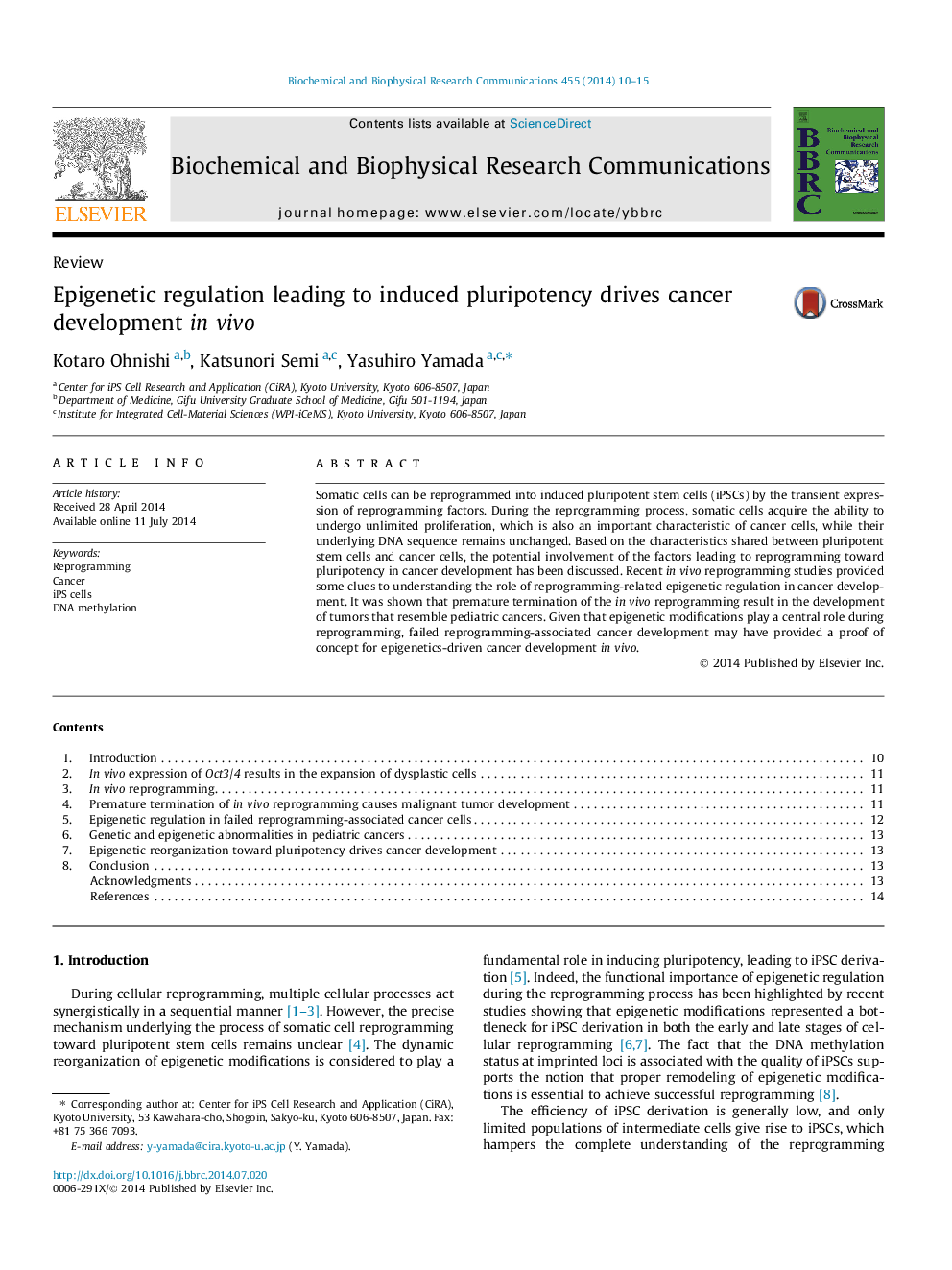| کد مقاله | کد نشریه | سال انتشار | مقاله انگلیسی | نسخه تمام متن |
|---|---|---|---|---|
| 1928338 | 1536774 | 2014 | 6 صفحه PDF | دانلود رایگان |
• Epigenetic regulation of failed reprogramming-associated cancer cells is discussed.
• Similarity between pediatric cancer and reprogramming-associated cancer is discussed.
• Concept for epigenetic cancer is discussed.
Somatic cells can be reprogrammed into induced pluripotent stem cells (iPSCs) by the transient expression of reprogramming factors. During the reprogramming process, somatic cells acquire the ability to undergo unlimited proliferation, which is also an important characteristic of cancer cells, while their underlying DNA sequence remains unchanged. Based on the characteristics shared between pluripotent stem cells and cancer cells, the potential involvement of the factors leading to reprogramming toward pluripotency in cancer development has been discussed. Recent in vivo reprogramming studies provided some clues to understanding the role of reprogramming-related epigenetic regulation in cancer development. It was shown that premature termination of the in vivo reprogramming result in the development of tumors that resemble pediatric cancers. Given that epigenetic modifications play a central role during reprogramming, failed reprogramming-associated cancer development may have provided a proof of concept for epigenetics-driven cancer development in vivo.
Journal: Biochemical and Biophysical Research Communications - Volume 455, Issues 1–2, 5 December 2014, Pages 10–15
